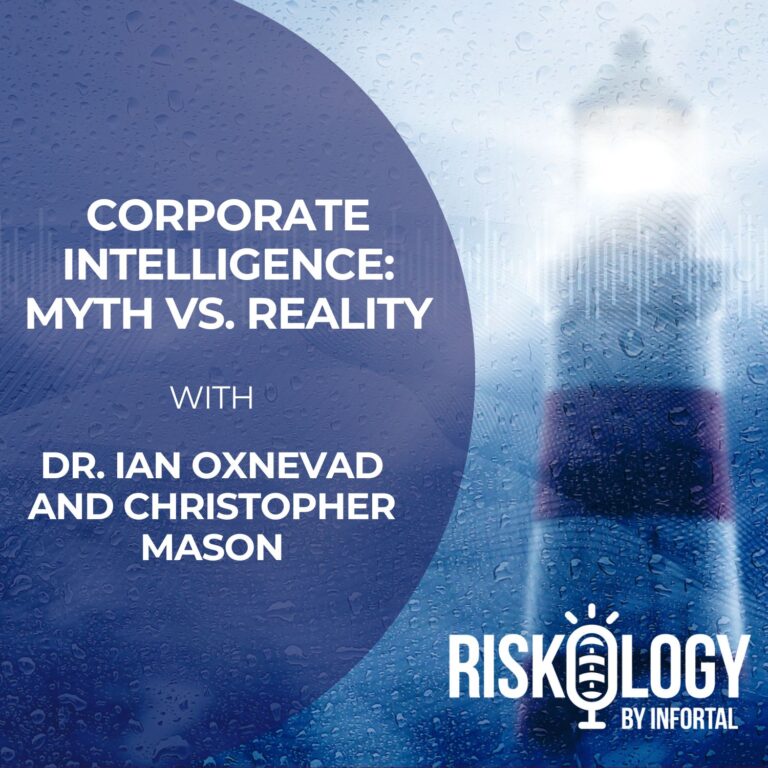Join hosts Christopher Mason and Dr. Ian Oxnevad as they discuss how companies can harness the power of intelligence to avoid crises and seek out new opportunities.
How can Companies Use Intelligence?
While intelligence is critical for crisis management, its benefits extend far beyond that.
Companies increasingly recognize the long-term advantages of integrating intelligence into their strategic planning. This involves not just avoiding immediate risks but also identifying long-term opportunities.
Business intelligence isn’t just about collecting data; it’s about leveraging the correct information to make informed decisions.
Breaking Down the Misconceptions
Many executives instantly think of spy movies or corporate espionage when they hear “intelligence.” This misconception can prevent companies from enjoying the benefits of a developed intelligence collection and analysis program.
For example, a company might use intelligence to identify potential supply chain disruptions, allowing them to take corrective actions in advance. Similarly, understanding the political landscape can help businesses anticipate changes that might affect their operations or investments.
Trust but Verify Approach
The principle of “trust but verify” becomes paramount when making substantial strategic decisions. Business intelligence is the verifying mechanism, ensuring trust is well-placed and minimizing risks.
Deploying intelligence investigations and integrating insights into decision-making allows companies to navigate complex market conditions with greater confidence and security. This practice helps avoid immediate pitfalls to establish long-term, resilient business strategies.
Assess Your Risk Profile and Decision-making Processes
Before integrating intelligence functions, companies need to understand their risk profile and decision-making processes. This involves conducting a risk assessment of your firm to establish a baseline to improve on.
Then, you must examine your company’s decision-making processes to determine how best to integrate valuable intelligence into your operations. You can navigate risk more effectively by embedding intelligence functions within your operations, providing a competitive advantage.
Establishing Intelligence Capabilities
Integrating an intelligence function within an organization requires careful consideration. Here are some key steps to consider.
- Appointing a Senior Intelligence Officer:
- Having a dedicated person at the executive level ensures that intelligence activities are coordinated efficiently.
- This officer would review the collection and analysis of intelligence and ensure that insights are disseminated to relevant stakeholders.
- Establishing Clear Communication Channels:
- Effective communication between the intelligence team and decision-makers is crucial.
- Regular reports and briefings can help keep the executive board informed and ready to act on intelligence-based insights.
- Leveraging Cross-functional Collaboration:
- Intelligence can enhance ongoing operations across functional departments, including compliance, marketing, and R&D, among others.
- Intelligence initially considered for one purpose may provide valuable insights to other departments.
Importantly, an effective intelligence management plan ensures that insights are efficiently communicated to the executive team, legal counsel, and relevant department heads.
Importance for Small and Mid-sized Companies
Smaller companies can also gain a competitive advantage by leveraging targeted business intelligence.
While smaller firms may not have the same resources as larger corporations, they can partner with external service providers to gain added insights without taking on the overhead of hiring a full intelligence team.
Gathering critical intelligence before making vital strategic decisions can be the difference between exponential growth and failure.
We hope you join us for another insightful episode of Riskology by Infortal.™
Resources:
Chris Mason on LinkedIn
Dr. Ian Oxnevad on LinkedIn



